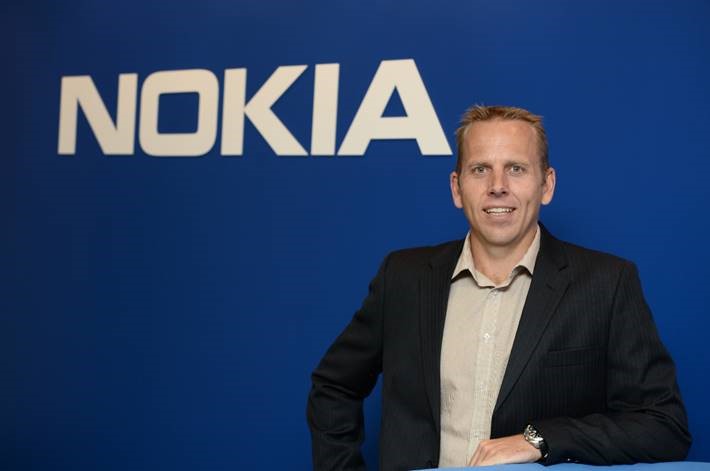IT & Leadership: Deon Geyser – The 5G imperative

It has been just a decade since the mobile phone spread rapidly across Africa, leapfrogging the landline and bringing literacy, education and connectivity to widely scattered populations. Mobile has played a significant role in building improved communities, healthcare and financial inclusion. Its potential extends into driving economic growth through technological progress and collaboration. It is the fuel that could potentially power Africa into the forefront of the Fourth Industrial Revolution.
This potential is the reason why there needs to be a commitment to innovation within the mobile space in Africa. A focus on developing solutions that allow for organisation, government and individual to embrace digital transformation by expanding network capabilities. Head of Sub-region, Southern Africa and Vodafone Market Unit, Deon Geyser from Nokia, it is critical that network and mobile innovation recognise the trends that are impacting on IP infrastructure and develop solutions that are capable of delivering what industry and business need.
“Mobile broadband and the Internet of Things (IoT) are undergoing an evolution,” says Deon. “Digitisation is pushing an increased move to the cloud and there is demand for new services that range from low latency to high bandwidth to massive communication. These demands are putting pressure on the network as organisations demand increased programmability, distribution, virtualisation, performance and scale.”
As the continent moves towards the imminent arrival of 5G the demand for bandwidth, reduced latency and jitter, IoT capability and high availability will rise exponentially. The path to 5G expects IP transport to accommodate this traffic growth and to have 10 times existing interface speeds with lower latency and packetized fronthaul. 5G introduces more complex traffic with service characteristics that range from extreme bandwidth for consumer broadband to ultra-reliable, low-latency communications for mission-critical applications, to the myriad sensors that comprise IoT. All this requires better coverage, greater capacity and enhanced quality of service.
“To fully appreciate the capabilities of 5G and to deliver on its true value and potential, the network has to build an intelligent infrastructure that’s capable of evolving and adapting to demand,” says Deon. “Technology needs to be service agnostic, intelligent and programmable, allowing for the addition of new capacity where needed, when needed. Dynamic resource shifting and network slicing are mission critical abilities.”
Not only does 5G bring a new radio and 5G core capabilities, but it is also a major inflexion point for new types of convergent, cloud optimised and cognitive services. It is as much a pressure point as an opportunity. Communication service providers gain access to the multitude of business touchpoints introduced by 5G and its new spectrum bands and increased bandwidth. The challenge is to ensure that the transport layer is capable of flexing to meet these new demands otherwise expansion, growth and opportunity will be seriously compromised.
“Only distributed, cloud-driven, highly scalable transport that makes use of all technologies and options can cost-effectively deliver all the features and functionalities the future demands,” adds Deon. “Bolting technology onto existing infrastructure to make it work isn’t enough. Now is the time to take a holistic view of infrastructure requirements across the physical and the virtualised and to invest into a smart networking fabric that’s capable of providing dynamic connections.”
Some service providers are actively engaging with the potential of 5G and the infrastructure required to harness it. Operators need to look to the future technology evolution in this arena so as to prepare the path for 5G. It is critical to pay attention as this could affect Africa’s move onto the global 4IR stage. Connectivity is critical to digital transformation on the continent and 5G must become the core of investment and innovation across both infrastructure and technology. This is the path to unlocking new opportunities and leading the race into the future.
Deon Geyser is the Head of Sub-region, Southern Africa and Vodafone Market Unit, Nokia,



